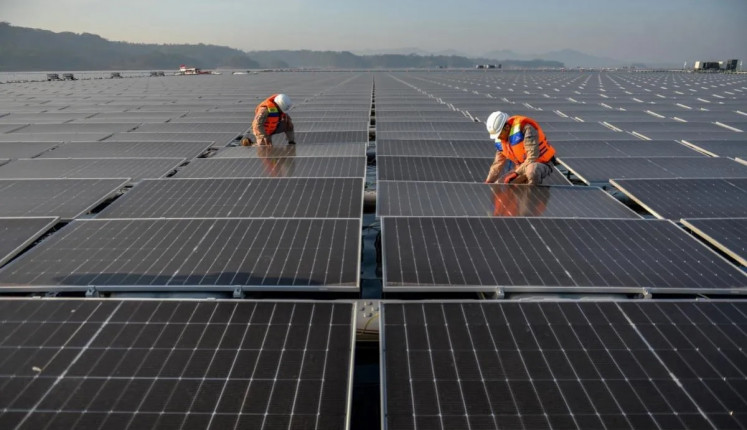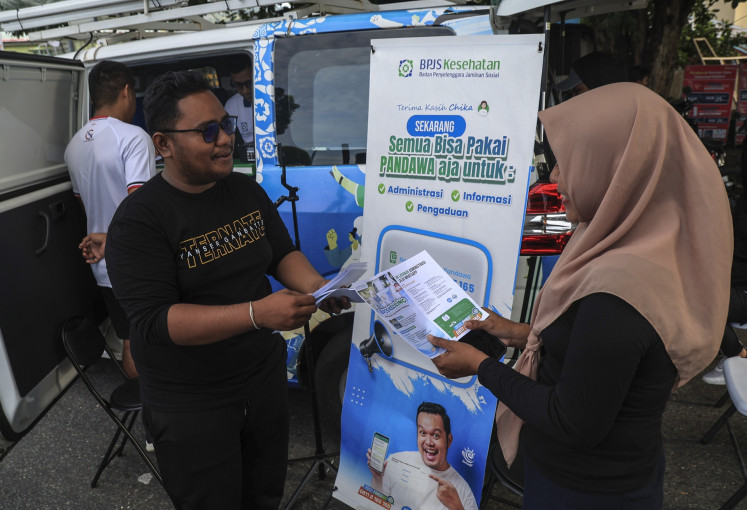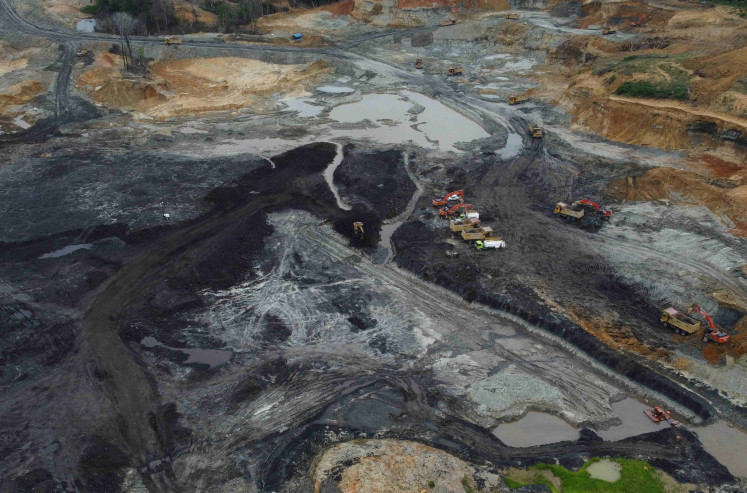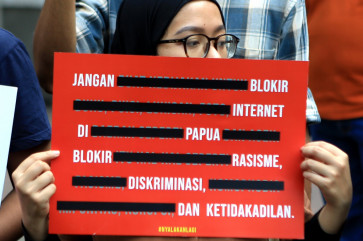Popular Reads
Top Results
Can't find what you're looking for?
View all search resultsPopular Reads
Top Results
Can't find what you're looking for?
View all search resultsDecolonizing our conception of conflict in Papua
Indonesian officials, mainly from the TNI and police, see the armed separatists as a threat to the territorial integrity of the Unitary State of Indonesia.
Change text size
Gift Premium Articles
to Anyone
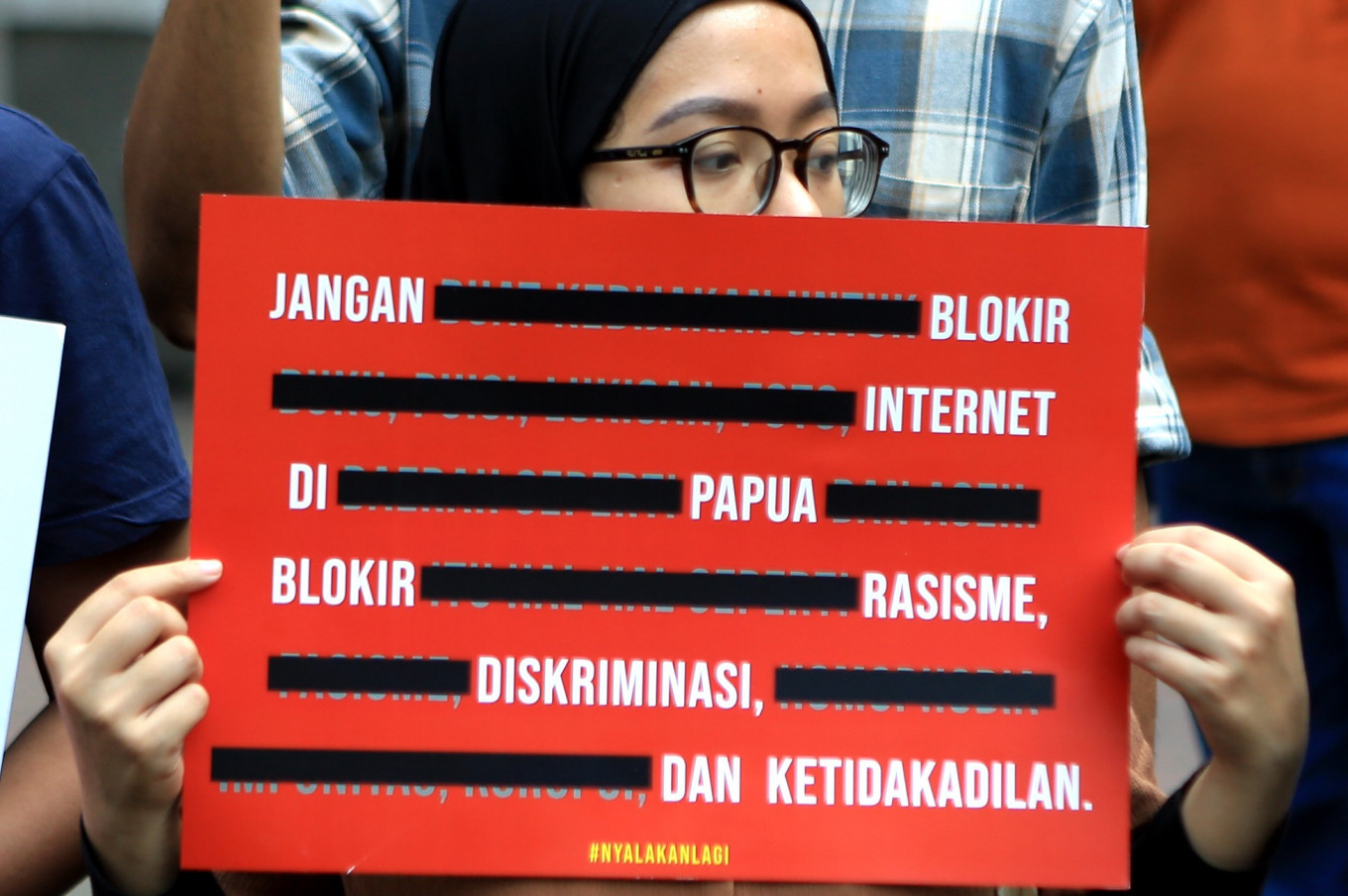 Solidarity: An activist holds up a poster during a demonstration in Jakarta on Aug. 23, 2019, in protest of an internet blackout in Papua and West Papua imposed following riots in a number of the provinces’ cities. The violence was a reaction to physical and racial abuse of Papuan students in Surabaya, East Java. (JP/Seto Wardhana)
Solidarity: An activist holds up a poster during a demonstration in Jakarta on Aug. 23, 2019, in protest of an internet blackout in Papua and West Papua imposed following riots in a number of the provinces’ cities. The violence was a reaction to physical and racial abuse of Papuan students in Surabaya, East Java. (JP/Seto Wardhana)
T
he release of New Zealand national Phillips Mehrtens has yet to occur. Whether the armed wing of the Free Papua Movement (OPM) gets its way or the Indonesian Military (TNI) and National Police get involved, President Joko “Jokowi” Widodo insisted during his recent visit to Papua that the Susi Air pilot’s safety was “a top priority”.
It has been more than a month since Mehrtens was taken hostage by armed Papuan separatists operating under Egianus Kogoya. Without any clues about the pilot’s release, the rebels’ political leverage is coming to the fore with a set of demands: (a) that Australia and New Zealand bring the case of Papuan statehood to the United Nations Security Council, (b) that the UN to mediate talks between Jakarta and Papua; (c) that the International Criminal Court launches an investigation into Indonesia’s role in rights abuses in Papua and (d), the most ambitious, that Papuan independence from Indonesia be recognized.
The demands are seemingly the tail end of colonial and post-colonial conflicts. Borrowing Edward Rice’s concept of “wars of the third kind” (1999), the conflict in Papua is a conflict in which a community seeks to create its own state in a war of “national liberation” that involves resistance against domination, exclusion, persecution or dispossession of lands and resources by a post-colonial state.
Within the term, the mode of warfare is “fragmented and dispersed, involving paramilitary and criminal groups […] and the use of atrocity and siege”.
The decades-long conflict is framed by a post-colonial mindset. On one hand, Papuan armed separatists continue to argue that Papua has the right to be independent and maintain that Indonesia is a colonizer. Apart from the historical background, they appeal to the international principle of “the right of self-determination” to resist any form of presence of the Indonesian government and people in the area.
On the other hand, Indonesian officials, mainly from the TNI and police, see the armed separatists as a threat to the territorial integrity of the unitary state of Indonesia. Classifying them as armed criminal groups (KKB) or, more recently, terrorist groups does not make any difference in the way the institutions deal with the issue, which is marked by constant security operations.
The old-fashioned right to self-determination, in addition to basic rights of indigenous people as enshrined in international bill of rights, tends to lose ground and become less attractive for two or three main reasons.





